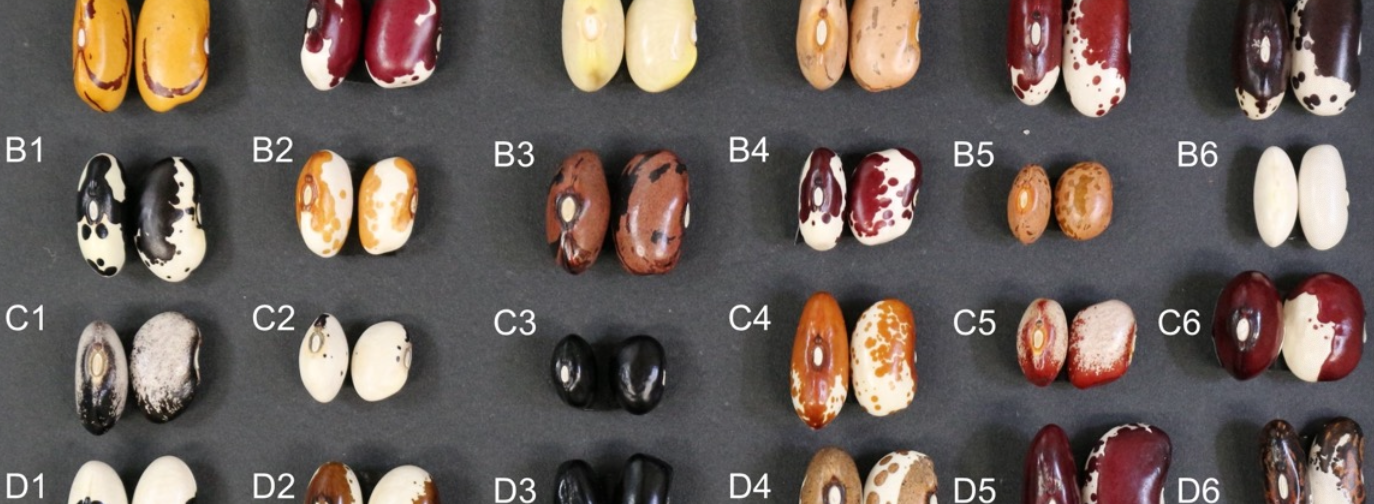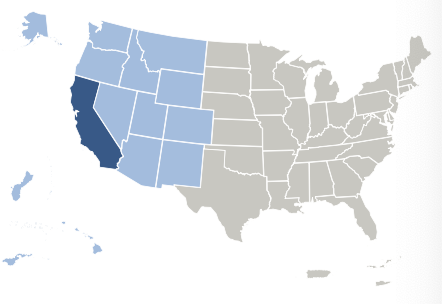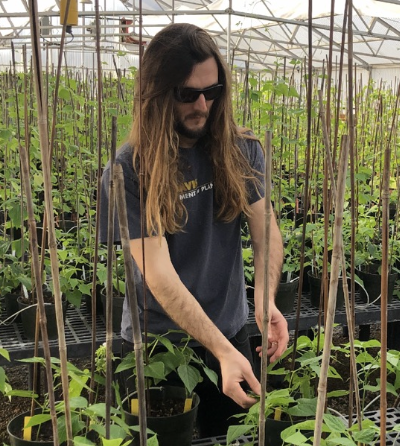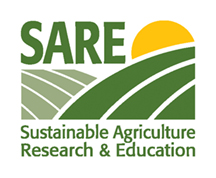
Genetically crossing heirloom dry beans with major commercial types achieved six new, high-yield, high-market value varietals distributed nationally and internationally through grassroots methods.
The varieties released from this project combine the high-market value of heirlooms with the high productivity of commercial types and several are highly productive across environments.”
—Travis Parker, Graduate Student Grantee
Viable Heirloom Varietals

Region: Western
State: California
Grant Type: Graduate Student
Grant: GW18-062
SARE POST-PROJECT EVALUATION IMPACT MODEL
This evaluation impact model is specific to this SARE-funded project.
Sustainability Impacts
The project grantees and stakeholders contributed to the following sustainability impacts:
- Environmental sustainability impacts
- Economic sustainability impacts
- Production efficiency impacts
Grantee Indicators
(Graduate Student)
Project grantees (defined above) achieved sustainability impacts by engaging with the following indicators through involvement with project activities:
- Increased knowledge/skills
- Increased capacity/motivation
- Increased engagement
- Practice change
- Career growth
Stakeholder Indicators
(Producers, Students)
Project stakeholders (defined above) achieved sustainability impacts by engaging with the following indicators through involvement with project activities:
- Increased knowledge/skills
- Practice change
The Success Story

Organic and sustainable farmers who use limited herbicides face significant challenges with weed control when growing legumes. Rapid canopy growth allows for mechanical weed control and reduces hand- weeding costs, in addition to making plants more resistant to abiotic pressures such as heat stress. Travis Parker developed inexpensive, cutting-edge imagery acquisition and processing methods (i.e., a processing pipeline for Unmanned Aerial Vehicle imagery) to identify genetic patterns unique to dry bean varieties with an optimal canopy structure and vigorous growth rate. He also bred varietals that combined the virus resistance and high yield of commercial varieties with the high-value seed type and culinary flavor of heirloom varieties. These releases performed well in taste tests and have been registered and released to hundreds of growers, and are now sold commercially.
Grassroots Dissemination of New Varietals
The vision I have for these is for them to filter through the sustainable agriculture community in a grassroots way, having them reach as many growers as possible and allowing them to make as big of an impact as they can. We want people to try them out freely and see what they think is best for their environment and market. ... We can distribute small amounts of seed and growers have been able to increase it thirtyfold from year to year to scale it up.”
—Travis Parker, Graduate Student Grantee
Grantee (Graduate Student) Highlights
At the time of this grant, Parker was a doctoral student researcher at UC Davis. He has continued using these breeding techniques to understand the genetics of seed color patterns that give smaller-scale (and often organic) producers a unique market niche with higher-market value. He also applied the UAV techniques to study other crops including alfalfa and spinach. Building from his graduate research, Parker obtained numerous additional grants, publishing extensively about these projects in peer-reviewed journals and industry publications. Additionally, Parker created a YouTube channel with thousands of subscribers and views, which features 21 videos showcasing his work in English, Spanish, French, and Portuguese. Most recently, he has consulted with Kirkhouse Trust-funded programs across East Africa.

Disseminating UAV Technology
I do a lot of work with African teams. We had a visitor from Zambia and one of the many things he was learning was this kind of drone imagery processing. It’s relatively inexpensive, but high quality. I was training him on how to take the raw images from the drone and make 3D models, then extract the data. His team is now applying these methods in Zambia. There has definitely been a continuation of these technological and educational objectives.”
—Travis Parker, Graduate Student Grantee
Other Stakeholder (Producers, Students) Highlights
During the grant period, Parker disseminated his learning through meetings and symposia. He created an undergraduate course curriculum to deliver his newly-developed phenotyping methods to undergraduate and graduate students at UC Davis. The course covered both theoretical and practical aspects of the use of drones in agriculture, culminating with a final project in which students posed a research question and answered it using the skills they developed in the class. Parker also delivered an abbreviated version of this content to producers to help inform their management decisions, which was highlighted in an article in Organic Farmer magazine. Other researchers have conducted trials with the new varietals in Wyoming, New York and elsewhere, and Parker’s varietals have shown strong heat- and drought-tolerance in locations impacted by climate change.
We accomplished a number of things that were not supposed to be part of the project..we had volunteers who would volunteer with us regularly. They wanted to see how we weighted the chickens and how to interact with the chickens.”
—Nicole Correa, Farmer/Rancher Grantee
Volunteers Gained Knowledge and Hands-On Experience
Sustainability Impacts
Legumes are a nutrient-dense plant-based protein source that hold promise for addressing climate change. They emit fewer greenhouse gases compared to other nitrogen-fertilized crops and provide sources of protein for humans, allow more sequestration of carbon in soils, and save fossil energy inputs in the system by reducing fertilizer needs. The varieties were selected for maximum yield in the hot, dry climate of Davis, California and other western field sites, and they have shown strong resilience to these adverse climate factors. Uptake of Parker’s varietals in the US and abroad promotes environmental sustainability and a climate-resilient future. Moreover, farmers and food industry members are growing the beans at scale and selling them online, contributing to production and economic sustainability in the form of reduced input costs (associated with weeding), higher crop yields, and economic profit.
Funding Breeding Work is a Challenge
I think that we often have more difficulty in getting funding for some of our projects, outside of grants, because everybody growing beans is working on such a tight margin that it’s harder for them to spare money for breeding work.”
Travis Parker, Graduate Student Grantee

Barriers
Parker’s grassroots approach is not revenue-generating; anyone can use and reproduce the varietals he has created without paying a fee. Moreover, heirloom breeding programs are challenging to fund, as the varietals they produce are viewed as “specialty” items that cannot be produced affordably and distributed at volume. At this time, Parker is not funded to do organic breeding research and is engaging in other lines of inquiry supported by project-specific grants.
The SARE funding was extremely useful. It helped immensely with the trialing that we did. A lot of the equipment that we bought, we still use today. ... We paid for the thermal camera from the SARE grant, which has helped us to understand plant water use that is so important for sustainable agriculture in western states. ... That thermal camera was a pretty major expense and we continue to use it regularly.”
Travis Parker, Graduate Student
SARE Funding was Instrumental in Purchasing UAV Equipment
Contributors
Parker applied grass roots methods to distribute the new seed varietals, attending the Organic Seed Growers Conference in 2020, which attracts growers across North America and beyond, the California Seed Summit in 2020 and 2023, and a UC Davis picnic day in 2023. From his booth at these events, Parker distributed well over 1,000 free seed packets to attendees. He also shipped seeds to individual farmers who requested them and now has an informal partnership with a participating farmer to sell seed to interested growers. Based on frequent communication with growers and researchers, as well as survey responses submitted by growers, Parker learned that they were successfully cultivating the new varietals across a range of environments.

